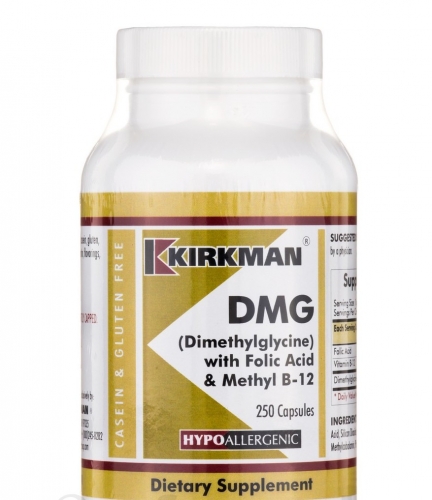Generic Name: phenylephrine (oral) (FEN il EFF rin)
Brand Name:Nasop, Sudafed PE, Sudogest PE, ...show all 22 brand namesNeo-Synephrine, Ah-Chew D, Despec-SF, Biorphen, Lusonal, Sudafed PE Quick Dissolve, Sudafed PE Extra Strength, Triaminic Thin Strips Nasal Congestion, Triaminic Toddler Congestion Thin Strips, Nasop12, Dimetapp Cold Drops, Triaminic Thin Strips Cold, Triaminic Thin Strips Infant Decongestant, Dimetapp Children's Cold & Allergy, Phenyl-T, PediaCare Children's Decongestant, Sudafed PE Children's Nasal Decongestant, Vazculep, Sudafed PE Congestion
Dosage Forms: oral liquid (2.5 mg/5 mL); oral tablet (10 mg); oral tablet, chewable, extended release (tannate 10 mg); oral tablet, disintegrating (10 mg)
Dimethylglycine (DMG) is a relatively small molecule with an amazing power to change and improve health, well-being, and vitality in a person's life.
What is phenylephrine?
Phenylephrine is a decongestant that is used to treat stuffy nose and sinus congestion caused by the common cold, hay fever, or other allergies.
Phenylephrine may also be used for purposes not listed in this medication guide.
Dimethylglycine (DMG) is a supplement that is often used as a performance enhancer in racing animals such as dogs and horses for its alleged ability to reduce lactic acid buildup and therefore its ability to reduce muscle fatigue. It is a derivative of the amino acid glycine and is a natural product of choline metabolism in the body. It is found naturally in plant and animal cells and in certain foods such as beans, cereal grains, and liver. Dimethylglycine (DMG) is a derivative of the amino acid glycine. It is found naturally in plant and animal cells and in certain foods such as beans, cereal grains, and liver. Dimethylglycine Memorial Sloan Kettering Cancer Center. DMG 5,600 for Horses This cost-effective DMG for horses can help improve oxygen utilization and reduce normal lactic acid buildup for better performance and post event recovery. Natural DMG Supplement for Horses (dimethylglycine HCl) for healthy oxygen utilization, which is critical for endurance, stamina, performance, and recovery. DMG is often sold commercially as hydrochloride salt (dimethylglycine HCL). Dimethylglycine’s Effects on Athletic Performance and Bodybuilding: Dimethylglycine has been claimed to be an athletic performance enhancer (for bodybuilding) and can be found in various sports supplements.
Important Information
Do not use phenylephrine if you have used an MAO inhibitor in the past 14 days, such as isocarboxazid, linezolid, methylene blue injection, phenelzine, rasagiline, selegiline, or tranylcypromine.
Before taking this medicine
Do not use phenylephrine if you have used an MAO inhibitor in the past 14 days. A dangerous drug interaction could occur. MAO inhibitors include isocarboxazid, linezolid, methylene blue injection, phenelzine, rasagiline, selegiline, tranylcypromine, and others.
You should not use phenylephrine if you are allergic to it.
Ask a doctor or pharmacist if this medicine is safe to use if you have:
heart disease, high blood pressure;
diabetes;
a thyroid disorder;
an enlarged prostate and urination problems; or
any drug allergies.
Ask a doctor before using this medicine if you are pregnant or breast-feeding.
The liquid form of this medicine may contain phenylalanine. Check the medication label if you have phenylketonuria (PKU).
How should I take phenylephrine?
Use exactly as directed on the label, or as prescribed by your doctor. Cold medicine is only for short-term use until your symptoms clear up.
Always follow directions on the medicine label about giving cold medicine to a child.
You must chew the chewable tablet before you swallow it.
Measure liquid medicine carefully. Use the dosing syringe provided, or use a medicine dose-measuring device (not a kitchen spoon).
Remove an orally disintegrating tablet from the package only when you are ready to take the medicine. Place the tablet in your mouth and allow it to dissolve, without chewing. Swallow several times as the tablet dissolves.
Call your doctor if your symptoms do not improve after 7 days, or if you have a fever, rash, or headaches.
If you need surgery, tell your surgeon if you are currently using phenylephrine.


Store at room temperature away from moisture and heat. Do not freeze.
What happens if I miss a dose?
Since cold medicine is used when needed, you may not be on a dosing schedule. Skip any missed dose if it's almost time for your next dose. Do not use two doses at one time.
What happens if I overdose?
Seek emergency medical attention or call the Poison Help line at 1-800-222-1222.
What should I avoid while taking phenylephrine?
Ask a doctor or pharmacist before using other cough or cold medicines that may contain similar ingredients.
Phenylephrine side effects
Get emergency medical help if you have signs of an allergic reaction:hives; difficulty breathing; swelling of your face, lips, tongue, or throat.
Stop using phenylephrine and call your doctor at once if you have:
fast, pounding, or irregular heartbeat;
severe dizziness or nervousness;
sleep problems (insomnia); or
increased blood pressure--severe headache, blurred vision, pounding in your neck or ears.
Common side effects may include:
flushing (warmth, redness, or tingly feeling);
loss of appetite; or
feeling restless or excited (especially in children).
This is not a complete list of side effects and others may occur. Call your doctor for medical advice about side effects. You may report side effects to FDA at 1-800-FDA-1088.
Phenylephrine dosing information
Usual Adult Dose for Hypotension:
Perioperative dosing (patients undergoing surgery with neuraxial or general anesthesia):
Initial dose: 50 to 250 mcg by intravenous bolus (most common doses: 50 to 100 mcg)
Maintenance dose: 0.5 to 1.4 mcg/kg/min by intravenous continuous infusion (titrate to blood pressure goal)
Septic or Other Vasodilatory Shock:
0.5 to 6 mcg/kg/min by intravenous continuous infusion (titrate to blood pressure goal)
-No bolus
-Doses over 6 mcg/kg/min do not show significant incremental blood pressure increases.
Usual Adult Dose for Shock:
Perioperative dosing (patients undergoing surgery with neuraxial or general anesthesia):
Initial dose: 50 to 250 mcg by intravenous bolus (most common doses: 50 to 100 mcg)
Maintenance dose: 0.5 to 1.4 mcg/kg/min by intravenous continuous infusion (titrate to blood pressure goal)
Septic or Other Vasodilatory Shock:
0.5 to 6 mcg/kg/min by intravenous continuous infusion (titrate to blood pressure goal)
-No bolus
-Doses over 6 mcg/kg/min do not show significant incremental blood pressure increases.
Usual Adult Dose for Nasal Congestion:
10 mg orally every 4 hours
Maximum dose: 60 mg per 24 hours
Usual Pediatric Dose for Nasal Congestion:
12 years and older: 10 mg orally every 4 hours
Maximum dose: 60 mg per 24 hours
What other drugs will affect phenylephrine?
Many drugs can affect phenylephrine, and some drugs should not be used at the same time. Tell your doctor about all your current medicines and any medicine you start or stop using. This includes prescription and over-the-counter medicines, vitamins, and herbal products. Not all possible interactions are listed here.
Frequently asked questions

Further information
Remember, keep this and all other medicines out of the reach of children, never share your medicines with others, and use this medication only for the indication prescribed.
Always consult your healthcare provider to ensure the information displayed on this page applies to your personal circumstances.
Dmg Hcl
Copyright 1996-2021 Cerner Multum, Inc. Version: 8.01.
Dmg Hcl Benefits
More about phenylephrine
- During Pregnancy or Breastfeeding
Consumer resources
Dmg Hcl
Other brands:Neo-Synephrine, Sudafed PE Congestion, Sudogest PE, Biorphen, ... +4 more
Professional resources
Related treatment guides
